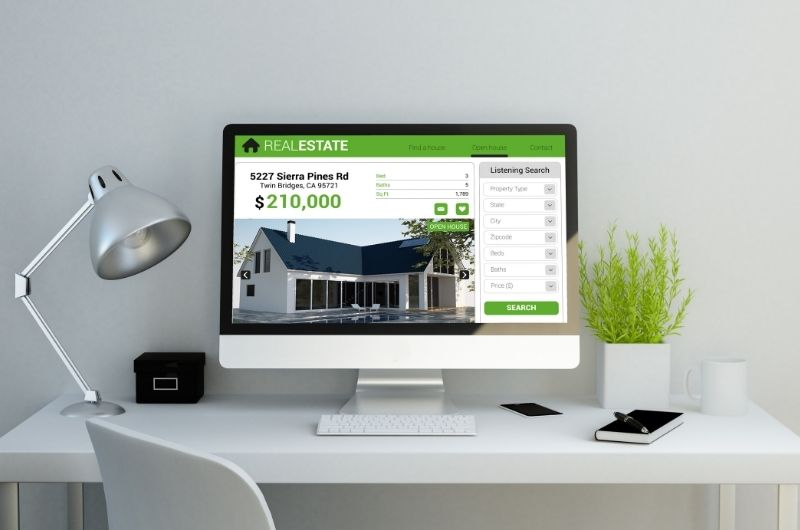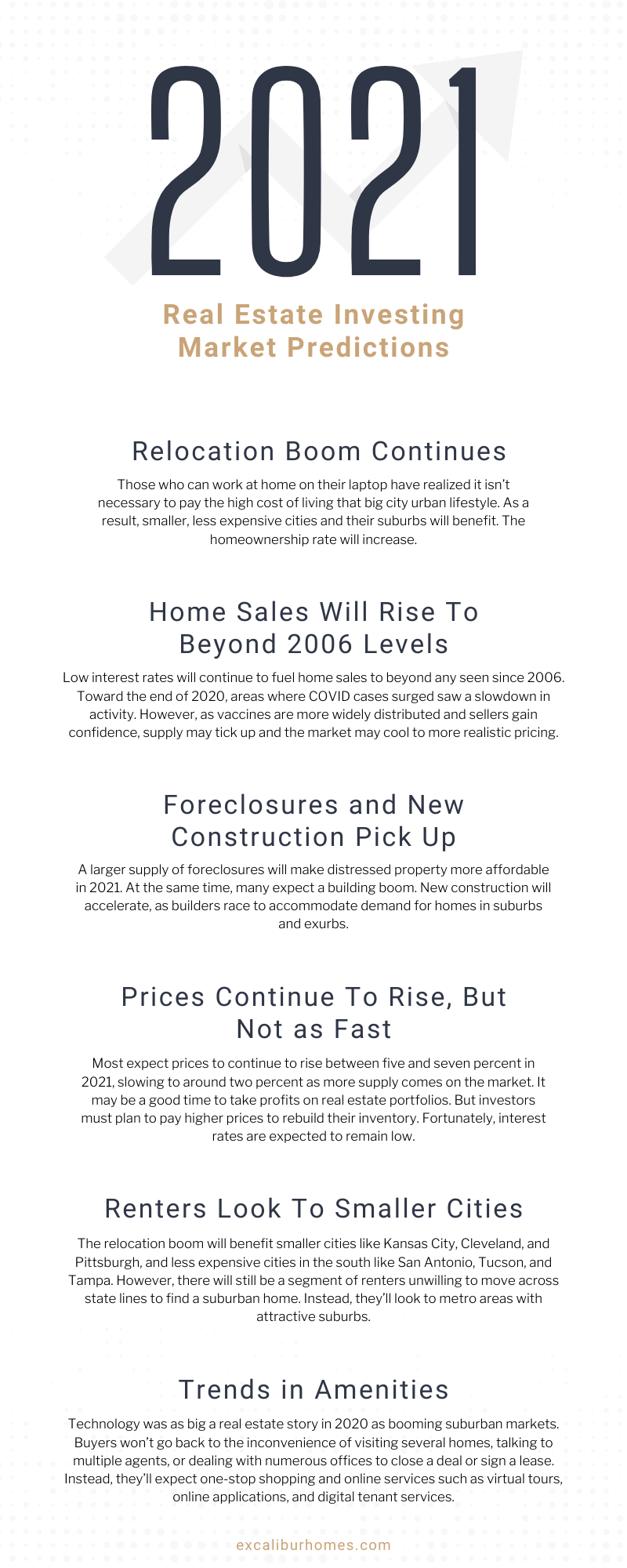
A year like no other in recent memory, 2020 was a fraught year packed with tragedies, chaos, and uncertainty. Pandemic-induced job losses and layoffs threw millions of families into financial distress. Compassionate investors did what they could to be flexible with tenants who were having difficulty paying rent. Governments imposed eviction moratoriums designed to prevent people who were already hurting from being made homeless in the middle of a pandemic.
At the same time, city dwellers with work-from-home jobs and financial means fled the density of urban life in droves. Tight supply and soaring demand for suburban homes drove prices up and created competitive bidding in many areas across the country. Interest rates stayed low, but price increases made it harder for first time buyers to muster down payments.
The alternative for Millennial first time buyers seeking single-family home living is rental homes. Thus, some experts predict a good year in the rental home space.
The question on investors’ minds is whether this appreciation can continue, or if a crash is lurking in the offing. Will the economy recover enough to provide good jobs so people can step up in their living arrangements and sign leases for larger or more upscale homes? Review these 2021 real estate investing market predictions to weigh the possibilities between crash and boom.
Relocation Boom Continues
The pandemic of 2020 taught many employers and their workers how possible it was to work from home—and that means to work from anywhere. Those who can work at home on their laptop have realized it isn’t necessary to pay the high cost of living that big city urban lifestyle.
As a result, smaller, less expensive cities and their suburbs will benefit. The homeownership rate will increase.
Home Sales Will Rise To Beyond 2006 Levels
Low interest rates will continue to fuel home sales to beyond any seen since 2006. Toward the end of 2020, areas where COVID cases surged saw a slowdown in activity. However, as vaccines are more widely distributed and sellers gain confidence, supply may tick up and the market may cool to more realistic pricing.
Foreclosures and New Construction Pick Up
Localized waves of foreclosures may begin in the latter half of 2021, as moratoriums expire and forbearance comes to an end. These may create revived opportunities in distressed properties for real estate investors whose purchases had impacted supply of distressed properties during 2020. A larger supply of foreclosures will make distressed property more affordable in 2021.
At the same time, many expect a building boom. New construction will accelerate, as builders race to accommodate demand for homes in suburbs and exurbs. Supplies of materials and labor have been tight and have created delays. These should ease as COVID caseloads decline with the widespread availability of vaccines.
Real estate investors will consider pivoting from existing homes that need upgrades to purchasing new, single family homes that are ready to rent. Even though they’re more expensive upfront, new construction homes may provide a better return on investment than a home needing significant repairs, even if the object is to flip the home.
However, it’s possible that the new administration may extend forbearance or moratoriums on evictions. This will continue the supply squeeze, keeping home prices high. Investors will have to decide if they want to take profits, and if so, what to do with the profits they reap.
Prices Continue To Rise, But Not as Fast
Most expect prices to continue to rise between five and seven percent in 2021, slowing to around two percent as more supply comes on the market. It may be a good time to take profits on real estate portfolios. But investors must plan to pay higher prices to rebuild their inventory. Fortunately, interest rates are expected to remain low.
Renters Look To Smaller Cities
The relocation boom will benefit smaller cities like Kansas City, Cleveland, and Pittsburgh, and less expensive cities in the south like San Antonio, Tucson, and Tampa. However, there will still be a segment of renters unwilling to move across state lines to find a suburban home.
Instead, they’ll look to metro areas with attractive suburbs. Instead of looking for condos or apartments downtown, these renters want more space, larger front and back yards, and greater privacy. Yet they still want city arts and culture within reach. This trend should benefit cities like Atlanta, Nashville, and Memphis.
Trends in Amenities
Technology was as big a real estate story in 2020 as booming suburban markets. Buyers won’t go back to the inconvenience of visiting several homes, talking to multiple agents, or dealing with numerous offices to close a deal or sign a lease. Instead, they’ll expect one-stop shopping and online services such as virtual tours, online applications, and digital tenant services.
The switch to working from home or hybrid models that allow working from home several days per week make the home office a necessity, not a luxury. Add at-home schooling to the mix and prospective tenants will be scrutinizing homes for versatile spaces that accommodate both work and study.
Homes with extra bedrooms that can be converted into offices or back porches and sheds that work as at-home schoolrooms may attract greater interest from buyers and renters alike.
With so many trends in play, it will be more important than ever to work with a knowledgeable broker or agent to assess available investment opportunities, including figuring CAP rates and potential ROI.
One thing everyone learned in 2020 is that conditions can turn on a dime. Real estate market predictions can run up against a changed reality and be turned on their heads. Many investors were completely unprepared for a crisis the magnitude of COVID-19. It behooves property owners to learn from this experience, build cash reserves, and make wise decisions about taking profits or solidifying portfolios.
Real estate investors looking to capitalize on the trend toward suburban, single family home living must do their homework, especially if looking at opportunities across the country in areas unfamiliar to them. Experienced, professional guidance from a broker or agent steeped in the local community is a wise investment.
Investors looking for opportunities in the metro Atlanta area and surrounding suburbs should contact Excalibur Homes. We provide Buford property management and property management services in Decatur, Suwanee, and Cumming.




